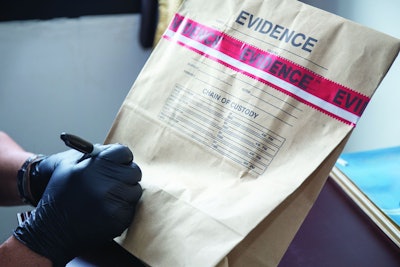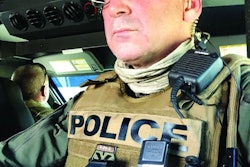 Photo: Getty Images
Photo: Getty Images
Women who come forward and report rapes endure two- to four-hour rape kit exams, and think their cases are being investigated, but the sobering reality is many of these kits are never processed.
According to End the Backlog, an initiative of the nonprofit Joyful Heart Foundation, more than 200,000 rape kits still await testing today. A 2011 report from the National Institute of Justice found that 18% of all unsolved rapes between 2002 and 2007 involved forensic evidence that had never been processed. In 2009, 11,000 forgotten rape kits were found in a Detroit police warehouse, meaning 11,000 victims endured a rape exam only to have the evidence discarded.
Why the Backlog
Ilse Knecht, Joyful Heart's director of advocacy and policy, reports there are two categories of untested rape kits. The first category involves the ones sitting at the state crime lab, awaiting testing longer than 30 days. The second category of untested kits is the ones that never make it to the lab at all and remain in law enforcement evidence rooms.
Lt. John Somerindyke of the Fayetteville (NC) Police Department says he can't speak to the why for every department, but he can share why his agency was failing to submit rape kits. In 2015, Somerindyke began reviewing unsolved rape cases to see if there were any old cases worth reopening and reinvestigating. He quickly identified one case where there had been minimal follow-up, and if more had been done, an arrest might have been made. "But when I pulled the evidence for the case, I discovered the sexual assault kit had been disposed of, meaning it had been destroyed," he says.
As he dug into this situation further, he found other rape kits also had been destroyed. Police Chief Harold Medlock then ordered an audit of all sexual assault kits in the custody of the Fayetteville PD, and this audit revealed more than 300 kits had been destroyed between 1995 and 2008 to make room for incoming evidence in the agency's crowded evidence room.
"At that time, there was no policy and no commonly followed practices in sexual assault cases," Somerindyke says. "In my opinion, there wasn't any accountability at any level in sending off evidence for these cases."
Many police departments lack clear written policies outlining the handling and testing of rape kit evidence, notes Knecht. In addition, many agencies also lack the manpower and financial resources to appropriately investigate sexual assault cases. When sex crimes units are under-resourced and inadequately staffed, Knecht says it leads officers to dismiss weaker cases.
"Most law enforcement agencies across the country do not have written policies about when rape kits should be sent in for testing. Most states lack these laws as well. So, in many places, that decision of whether to send in the kit comes down to one person who might bring into that decision a whole host of biases and prejudices, and preconceived notions about how a rape survivor should act," Knecht says.
Bias and Trauma Behavior
Personal biases can factor into whether victims are believed, says Kesha Gibson-Carter, director of the Georgia-based Rape Crisis Center of the Coastal Empire (www.rccsav.org).
"We had a woman allege a rape here in Savannah, and she was considered a frequent flyer, or woman of the night, by law enforcement," says Gibson-Carter. "Law enforcement didn't take her case seriously, and her kit was never processed, though she had named her attacker. A year and a half later, this offender raped three elderly women in the community."
Knowledge gaps and a lack of training in the neurobiology of trauma—the unique response of a victim to a traumatic event—can also impact whether officers submit rape kits. Investigating officers may have received little training in how rape victims might behave, and thus may interpret actions like a lack of emotion or gaps in their stories as evidence of lying.
Yet trauma, Knecht says, can lead survivors to behave in ways that make their stories seem less credible.
"It's essential that officers get training on trauma and how trauma affects the brain, and how that in turn affects victim behavior. Because to the untrained eye, that behavior can make it seem like they are lying," Knecht says.
 It's critical for agencies to have a protocol for the collection, timely processing, and storage of sexual assault evidence. Photo: Getty Images
It's critical for agencies to have a protocol for the collection, timely processing, and storage of sexual assault evidence. Photo: Getty Images
Somerindyke agrees. "You won't believe how many reports I've read where we thought we were being the greatest detectives in the world because we thought her story was changing or something didn't sound quite right, and concluded she was lying and closed the case. But these victims were suffering from trauma, so their memories weren't straight. They were remembering things as they retold the story. They were remembering things that in our minds we felt they should have remembered before and we blamed them for changing their story."
Changing Policy and Protocol
Knecht stresses there are many officers across the country who are doing a great job. She adds, "There are also ones who have realized they didn't do a great job and are now fixing it. We have agencies that are apologizing for what they've done in the past, and are making changes to make sure it doesn't happen again."
The Fayetteville PD is one of the many agencies across the country making great strides to upend the backlog and change how rape victims are treated by law enforcement.
In September 2015, the department was awarded a $363,000 Sexual Assault Kit Initiative (SAKI) grant from the Department of Justice. In 2016, the department received another SAKI grant. "Between the two grants we had over a million dollars in funding to process our sexual assault kit backlog," Somerindyke says. "When we finally counted the [unprocessed] kits in our inventory, we had more than 600. We used part of the money to hire two victim advocates to work in our rape crisis center to help victims of our cold cases, and then we began processing those kits. In the past two years, we've made 22 arrests on rape cold cases. We currently have around 30 DNA samples to load into CODIS, so we expect more arrests in the future."
Fayetteville PD has also updated its sexual assault case policy, modeling it after a policy used by the San Diego Police Department. "Our old policy was very dated, and outright offensive in the way we looked at victims," Somerindyke says, noting the old policy mandated a criminal record check on every victim.
"Our policy wasn't very victim-centered or victim-friendly, so we changed that. I feel as a department we did a lot of victim blaming in the past until we got the grant and learned what being victim-centered really means and better understood the neurobiology of trauma," he adds. "We also tightened up our evidence submission practices going from assault kits not being sent off with any consistency to them being sent off on a regular basis. We have documentation that we fill out for every sexual assault to help us decide when to send kits off, and we have timelines in place for evidence review and for submitting kits."
Today, Fayetteville officers fill out a sexual assault case history and analysis form, which describes what happened and helps determine what evidence, if any, will be sent off. It also prioritizes the evidence for submission. Officers must submit this form within 48 hours of being assigned a case.
The department then mandates an evidence review within seven days. After this review, detectives submit a Request for Forensic Service form to the department's forensic evidence managers detailing which evidence, if any, is to be sent off to the state crime lab or a private lab. That request must be turned in within seven days.
Knecht recommends that policies, like the one used by Fayetteville, have a clear and consistent approach that spells out when the kits should be picked up from the hospital, sent to a lab, turned around by the lab, and so on. She says submission times vary across the country, and can be anywhere from seven days to six months. "We recommend that evidence be on its way to a crime lab within seven days," she says, pointing out that crime labs also have a backlog, so the sooner evidence arrives, the better.
"Labs are underfunded, and their employees are overworked, and while many of them are addressing capacity and efficiency through robotics and things like that, they still have a way to go," Knecht says. "We'd love to be able to say that rape kits are turned around in 30 days or less, but right now it can be up to six months. But the faster we get them into the database, the faster we can identify these serial offenders and cut their criminal careers short."  Nationwide, tens of thousands of rape kits have been collected but never submitted for DNA testing. Photo: Getty Images
Nationwide, tens of thousands of rape kits have been collected but never submitted for DNA testing. Photo: Getty Images
While the Fayetteville PD has had much success with its new policy, Knecht says she'd like to move toward a day when every kit is tested. "This ensures that no matter where a victim lives or what they do for a living, they will get the same response," she says.
Transparency about where the kits are in the process is also a key factor, she adds, noting that it's important for survivors to know where their kits are and the status of their cases. "This is something we are working on across the states. We want to make sure survivors have the right to know the status of their kits," says Knecht.
Gibson-Carter adds, "Speaking as an advocate, we are inclined to trust the process as long as there is transparency in that process, and we are getting information related to the case, and know that our survivors are being treated with dignity, respect, and compassion."
As the Fayetteville PD presses on with its changes, notifying victims of its intent to reopen their cases and process their rape kits, they are receiving a wide range of responses.
Somerindyke says he's had some memorable ones: "One survivor after being notified told me she regained her faith in our department. Another told me to go home to my family that night and smile. Those responses were based on two simple words: 'I'm sorry.' It's hard for some of us guys in law enforcement to admit we made a mistake, but I think once you do it really opens the door for some great work with past, present, and future sexual assault cases."
The main goal of addressing the backlog and making policy changes is to reduce the number of unreported cases. Somerindyke states that since the Fayetteville PD made changes to its sexual assault policy, it has seen its rape numbers rise. "Our numbers have increased by 50%, which sounds terrible, but we are good with that because it means we are reducing the numbers of unreported rapes," he says.














